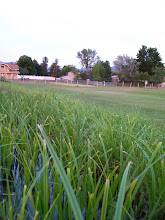1. Social Inequality Threatening India's Economic Stability
This article presents the argument that India cannot maintain its economic growth or become a true force in the world economy as long as such disparity remains within its country. Using statistical evidence and anecdotes, the author creates a compelling case that domestic improvement must precede any notable role in the international realm.
2. Reducing Poverty and Inequality in India: Has Liberalization Helped?
In this study, by Raghbendra Jha, the effects that liberalization has had on poverty and inequality in India are assessed. From his research, Jha concludes that India has seen an increase in inequality and only a minor decrease in poverty since liberalization.
3. Gender Inequality
This article examines yet another aspect of inequality in India: gender inequalities. The article provides historical information regarding the origins of these inequalities and the status of women in India today.
4. The Hunger Project
This website is home to a non-profit organization with the goal of stopping world hunger. On the site are news updates from countries around the world, including India, where most of the world's poor reside. The site also draws connections between the stopping inequality in India and ending hunger.
5. CIA World Fact Book
The CIA World Fact Book is an excellent resource for general information on India as a whole. The site provides a wide variety of facts ranging from subjects of government to demography to transportation.
6. Incredible India
This website hosts excellent photographs of the scenic feast that is India. The site is geared towards tourism and gives a different spin on India tailored for potential visitors. A perusal of the site would give a viewer no knowledge of the extreme poverty of India - only the beauty and pleasures that await those who can afford them.
7. Ensuring Secular Harmony in India - Searching for Some Answers
This article presents a history of historic violence and tension between Indian Muslims and Hindus. The article argues that, in order for peace to be achieved, the Indian government must truly embrace a pluralist society, not just in word, but in deed.
8. Ethnic and Religious Conflicts in India
This article gives historical background into why India has experienced and experiences so much conflict between religious and ethnic groups. This is an excellent source for a better understanding of the diverse background of India and how this background shapes today's realities.
9. Christian Persecution India
This blog provides news updates on the status of persecuted Christians in India. It is a helpful source to determine what religious atrocities are currently occurring.
10. The Caste System in India
This site gives general information on what the caste system in India is and how it works. The site does an excellent job of explaining how all these facets of the system affect Indians' lives.
11. The Castes of India
This blog gives helpful information on the levels of the Indian caste system and how these pertain to life in India. The author describes the historical basis of the caste and focuses especially on the lives of the untouchables.
12. Caste and Inequality in Healthcare
This blog draws a connection between level of caste and quality of healthcare. This connection outlines yet another disparity in India linked to its institutionalized system of inequality.
13. Hunger and Poverity in India and Pakistan
This blog explores the severity of hunger and poverty in India and preventitive measures to combat these issues. The author goes into great depth and has many rich insights.
14. India's Problems
This article delves into India's vast array of social problems from inequality to education to poverty. The author argues the root causes of these issues and the proper response the world should have toward them.
15. How to Help India's Poor
This article gives useful strategies that we as consumers can employ to help increase the quality of life for the impoverished in India as well as decrease inequality.
Subscribe to:
Post Comments (Atom)

No comments:
Post a Comment